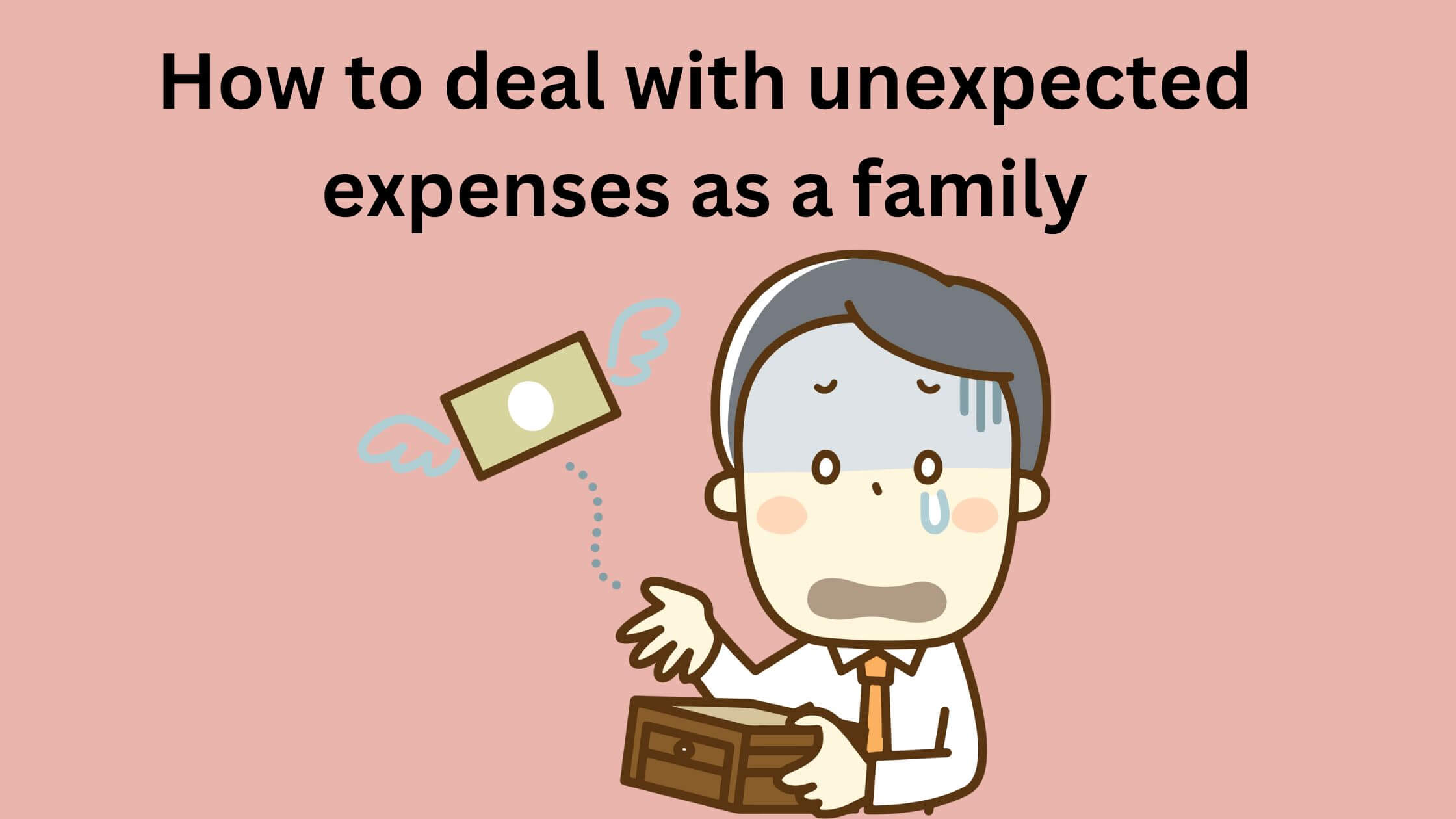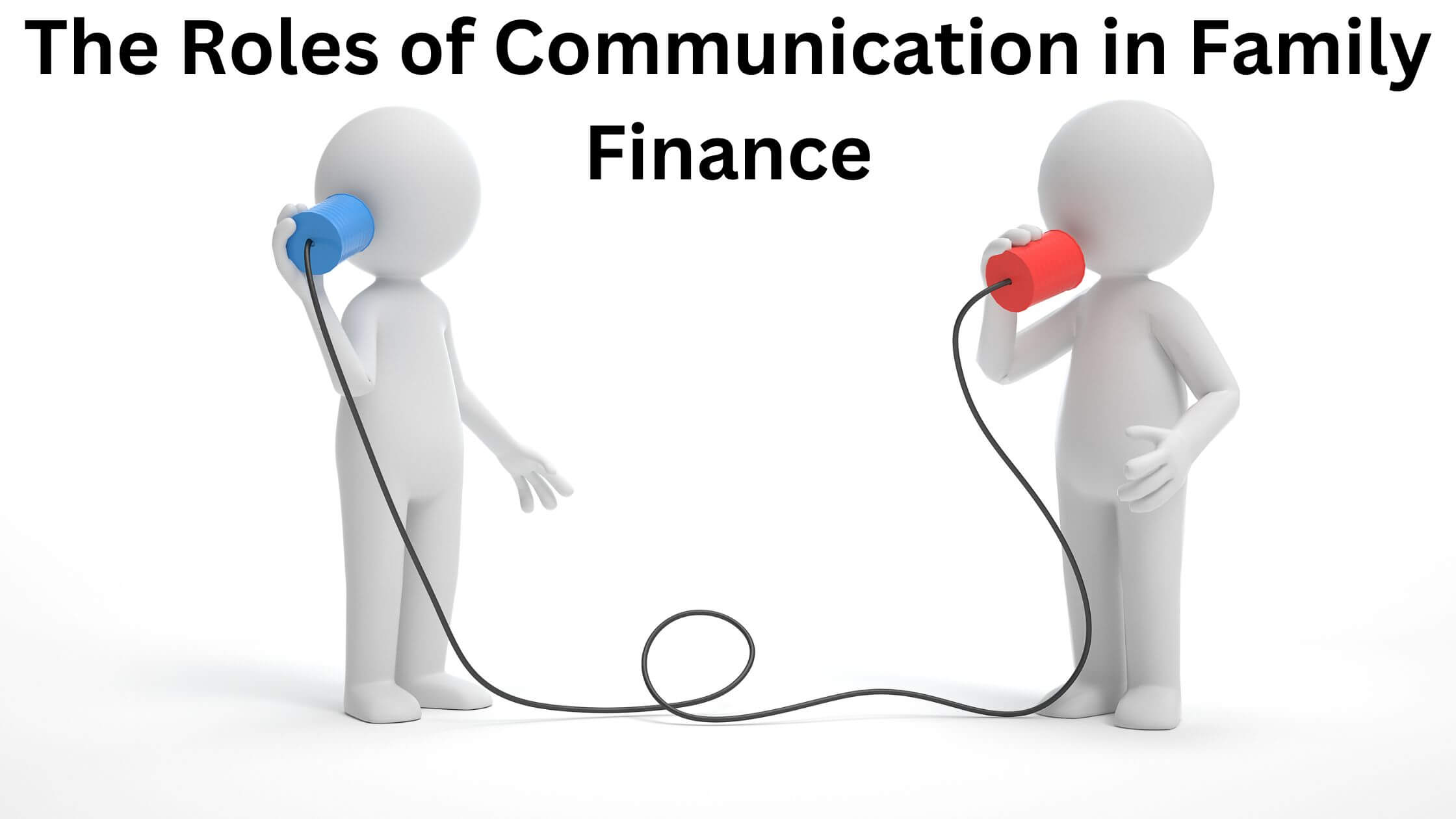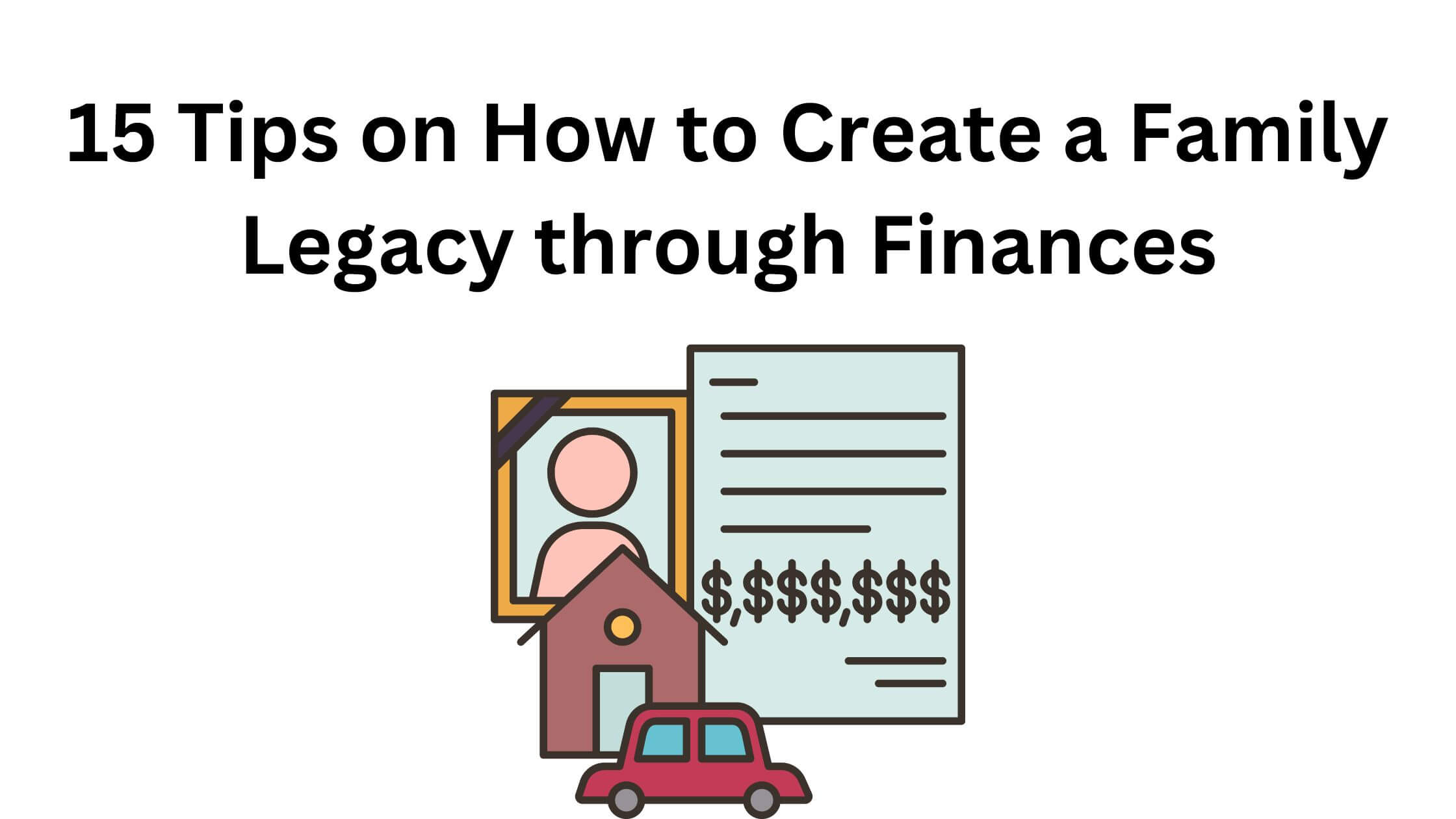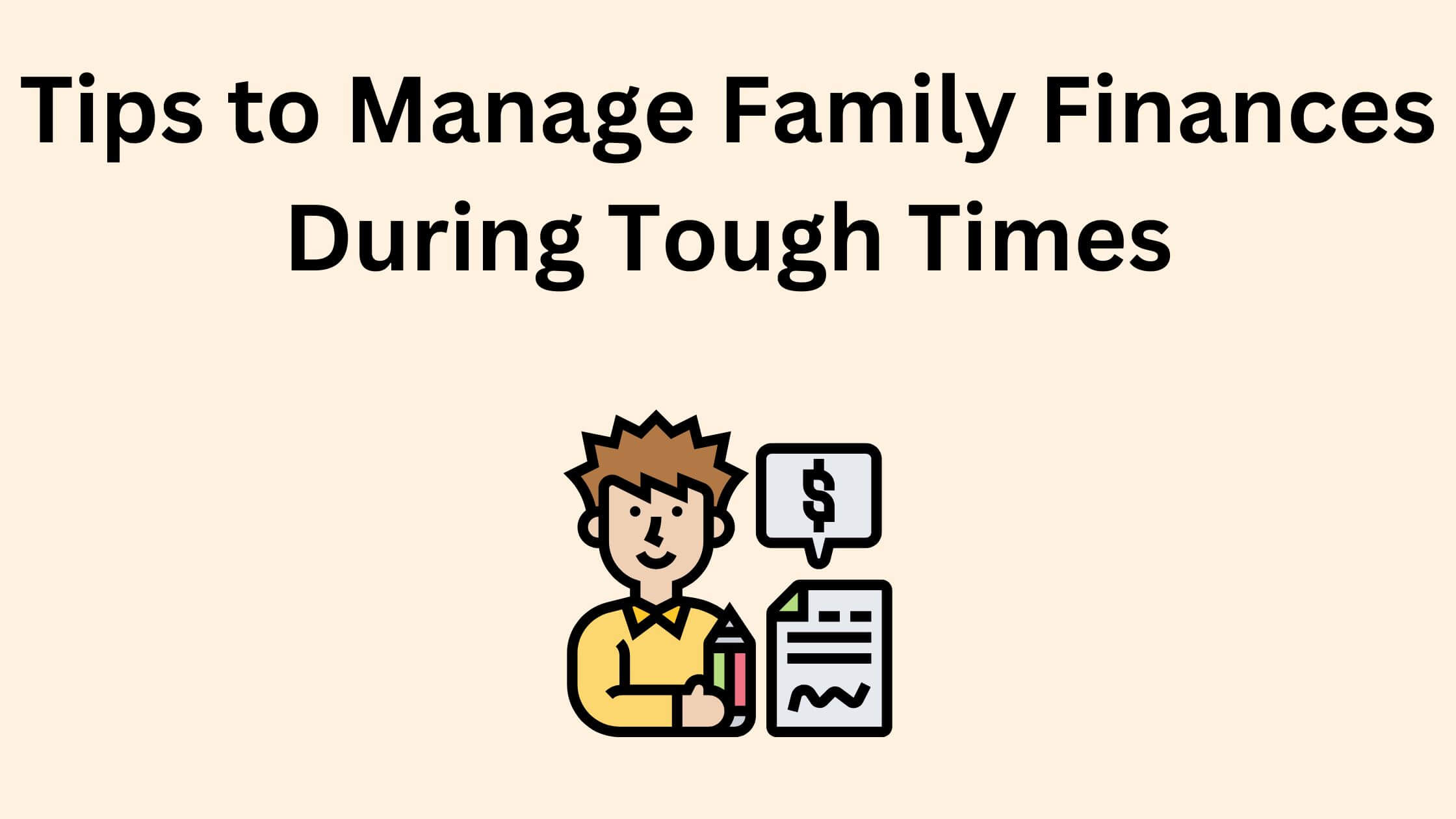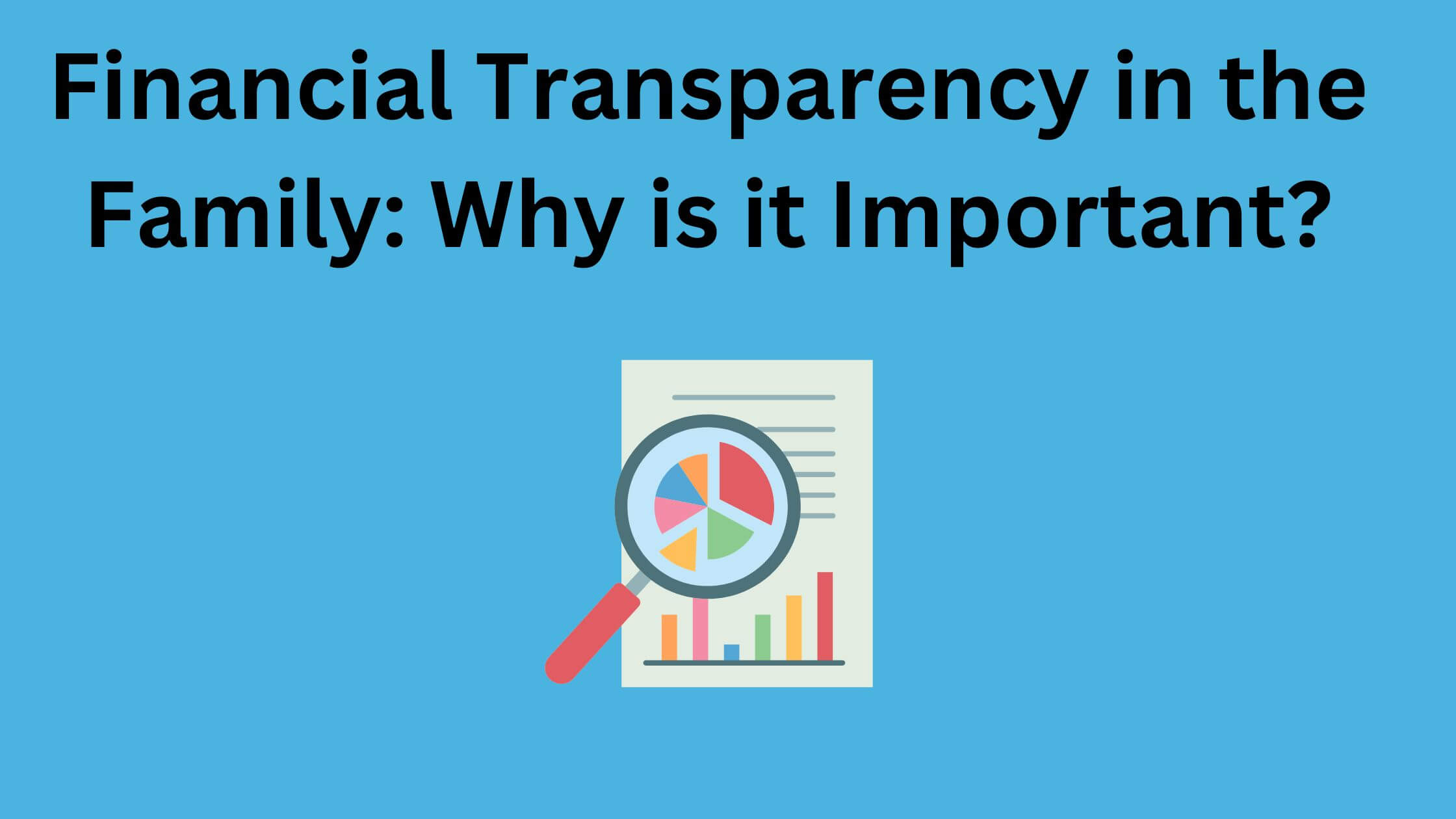As a family, unexpected expenses can often put us in a tricky financial situation. Whether it’s a sudden car repair or a medical emergency, unexpected expenses can crop up at any time and can be challenging to deal with.
These types of expenses can throw our budget off course, leaving us stressed and anxious about how to pay for them. However, with a little bit of planning and preparation, it’s possible to deal with unexpected expenses as a family without causing too much financial strain.
In this blog, we’ll explore some tips and tricks that can help you manage unexpected expenses and keep your family’s finances on track.
Ways to Deal with Unexpected Expenses as a Family
1. Open Multiple Bank Accounts
Opening multiple bank accounts is a smart and effective way to organize your finances and set aside money specifically for emergencies.
One of these accounts should be a family emergency account, where you can deposit money regularly for quick access in the event of an unforeseen expense. This way, you won’t have to stress about finding the funds to cover the sudden expense, and can instead focus on dealing with the situation at hand.
Having a separate account for emergencies also helps to avoid scrambling to cover the expense by dipping into other accounts or using credit, which could result in fees or added interest charges. By being proactive and setting aside funds specifically for emergencies, you can alleviate stress and ensure that you are prepared for whatever unexpected financial situation may arise.
So, start organizing your finances by opening multiple accounts and prioritizing emergency savings, because it could make all the difference in the long run.
2. Allocate a specific amount of funds for each account monthly, building up your savings account over time.
One of the best things my family and I did to prepare for unexpected expenses was to allocate a specific amount of money for each account every month. It may not seem like much at first, but over time, it really adds up! Having a separate savings account specifically for emergencies is a great way to make sure you have funds available when you need them. It gives you peace of mind knowing that you have a safety net in case something unexpected happens. If you have multiple accounts, consider setting a goal for each one and make a plan to meet that goal. This approach helps you build up your savings without breaking the bank. Start small and work your way up, but be consistent. Even a little bit of saving each month can go a long way in the long run.
3. Have Adequate Funds
Hey there! I have found that adding funds to my account every month is an excellent way to ensure that I am prepared for any unforeseen emergencies without completely upending my monthly budget. It may seem daunting to set aside money every month, especially if you have other obligations to fulfill. However, it’s better to be prepared for the unexpected than to get caught off guard.
I personally make sure to have a separate emergency savings fund in which I deposit a specific amount of money each month. Having this separate account helps me identify the money that is only allocated to emergencies. I have found that having a specific amount of money that’s reserved for emergencies provides me with peace of mind.
It’s essential to make sure that you replenish the funds that you use from your emergency savings account as soon as possible. This time around, you’ll be better prepared for the next unexpected expense that comes your way. Trust me. It’s always better to be prepared.
4. Replenish Funds
After experiencing an unexpected expense, it’s always a relief when you’ve successfully recovered from it. However, it’s important to remember that life is unpredictable and another unexpected expense could happen at any time. That’s why it’s crucial to replenish the funds that were used for the emergency.
It can be tempting to use that extra money for something else, but it’s essential to set aside some for emergencies. You never know when you’ll need it again.
To replenish funds, I personally make a plan or set a goal every month. I set aside a certain amount of money from my paycheck and put it towards my emergency fund until I reach my goal. It may take some time, but it’s worth it to have a safety net for the unexpected.
Replenishing funds also give you peace of mind. You’ll feel more confident and secure, knowing you’re prepared for any financial challenge that comes your way. Don’t wait until it’s too late – start replenishing your funds today!
5. Use Credit Cards Wisely
Personally, I believe that credit cards can be a useful tool when dealing with unexpected expenses. However, it’s important to use them wisely. If you must use a credit card to cover unexpected expenses, make sure you can pay off the debt within a reasonable timeframe to avoid interest charges. It’s tempting to think that you’ll pay it off next month, but the interest charges can add up quickly and make the situation even worse.
Before using your credit card, make a plan for how you will pay it off. Look at your budget and figure out how much you can realistically afford to pay each month. This will help you avoid getting into more debt than you can handle. And remember, using a credit card to cover unexpected expenses should be a last resort. Try to build up an emergency fund as soon as possible, so you have the funds to cover unexpected expenses without relying on credit cards.
6. Cut Back on Spending
Hey there! When unexpected expenses hit, cutting back on spending is a great way to free up some money to handle the situation. The first step is evaluating your budget and identifying areas where you can cut back on unnecessary spending. Take a look at your monthly bills and assess where you can save some cash.
Can you switch to a cheaper phone plan or cut back on cable or streaming services? Do you eat out more often than necessary? Can you limit your shopping or entertainment expenses? Once you have a clear understanding of where your money is going, you can make changes to free up funds for emergencies.
It may not be fun to cut back but think of it as a temporary sacrifice to gain financial stability in the long run. Remember, it’s always better to be prepared for unexpected expenses than to be caught off guard.
7. Prioritize Expenses
When faced with unexpected expenses, it can be overwhelming to figure out how to cover all the costs. That’s why it’s important to prioritize your expenses. First, make a list of all the expenses that are absolutely essential, like rent, utilities, and food. These are the things you cannot live without, and they should be paid first.
Then, look at non-essential expenses, like entertainment, eating out, or buying new clothes. These expenses can wait until you’ve covered the essential expenses.
It can be hard to put off things you enjoy, but remember that it’s necessary to prioritize in times of financial stress. If you can’t pay all your bills at once, it’s more important to keep a roof over your head and food on the table.
By focusing on your most important expenses first, you’ll be able to manage unexpected expenses more effectively and avoid falling further into debt. Prioritizing expenses is just one way to help your family navigate unexpected expenses and stay on track financially.
8. Negotiate Payment Plans
When unexpected expenses come up, it can be really hard to figure out how to pay for them. One solution I’ve found helpful is reaching out to my creditors and asking if they offer payment plans or a grace period to help cover those expenses. It might seem scary to call them up and ask, but many companies are willing to work with you if you just ask. Sometimes they’ll offer a payment plan that lets you spread out the cost over a few months, or they might give you a grace period where you can make a payment a little later than usual without being penalized. This can really help smooth out a rough financial patch. So if you find yourself facing unexpected expenses, don’t be afraid to reach out to your creditors and see if they can help.
9. Seek Assistance
Sometimes, unexpected expenses can really throw a family in a loop, and it’s important to know that there are resources available to help. Local government or non-profit organizations may offer emergency assistance programs that can provide financial help, and it’s worth checking if you’re struggling to make ends meet.
When you’re facing an unexpected expense, it can be easy to feel overwhelmed and alone. But you’re not alone, and there are people out there who want to help you get back on your feet. Checking with local organizations is a good place to start, and you may be surprised at how much support is available. These programs can provide assistance with things like housing, food, and medical bills, and can be a lifesaver when bills start piling up.
It’s worth taking the time to do a little research and see what support is available in your area. You don’t have to face unexpected expenses alone, and reaching out for help is a brave and important step. Remember, we’re all in this together, and there’s no shame in asking for help when you need it.
10. Use Coupons and Discounts
One of the best ways I’ve found to deal with unexpected expenses is to look for coupons and discounts when purchasing items or services related to them.
It may seem like a small saving at the time, but over time those small amounts can add up and help alleviate the burden of unexpected expenses. I like to do some research online or check local flyers and newspapers for discounts and coupons before making any purchases.
This strategy has saved me a lot of money over the years and has allowed me to allocate those extra funds toward my emergency savings. Plus, it’s always a good feeling to get a discount on something you were already planning to buy.
So, next time you have to deal with an unexpected expense, take a few extra moments to search for coupons or discounts to help lower the cost. It can make a big difference in the long run.
11. Sell Unused Items
Unexpected expenses can be tough, and one way I’ve found to generate extra cash is by selling items I no longer use. It’s a win-win situation – not only do I earn some extra money, but I also declutter my home.
Some items that could be sold include clothing, furniture, electronics, and collectibles. I like to use online platforms like Facebook Marketplace or eBay to list my items. Another option is to have a garage or yard sale to sell multiple items at once.
Before selling, make sure the items are in good condition and priced appropriately. You can research similar items to get an idea of their value. Be sure to also include clear photos and descriptions to attract potential buyers.
Selling unused items may not fully cover unexpected expenses, but every little bit helps. Plus, it’s a great way to free up space in your home and earn some extra cash in the process.
12. Delay Large Purchases
If you’re like me, you love a good shopping spree and enjoy treating yourself to new things every once in a while. However, when unexpected expenses arise, it’s important to prioritize and postpone any large purchases until you have enough emergency funds saved up. This is a crucial step in preparing for unexpected financial situations that may come your way.
For example, if you were planning on buying a new car or home, consider holding off until you have enough savings in case of an emergency. It may seem daunting to put off those big purchase plans, but delaying them can save you from financial strain in the long run.
Instead, focus on building up your emergency funds by setting aside a portion of your income every month specifically for that purpose. It may take some time, but having a safety net of savings will provide peace of mind and help you tackle any unexpected expenses that may come your way.
Remember, delaying large purchases is just one step in preparing for unexpected expenses. Stay proactive in your savings efforts, and you’ll be better equipped to handle any financial challenges that may arise.
13. Prioritize Savings
Hey there! When it comes to managing unexpected expenses as a family, one of the most important things to prioritize is savings. Trust me, it’ll save you from a lot of stress in the long run. Start by setting aside a portion of your income every month specifically for emergency savings.
It may be tempting to spend that extra cash on a luxury item or activity, but think about the sense of security and relief you’ll feel knowing that you’re prepared for whatever life throws your way.
Building up your emergency fund takes time, so don’t get discouraged if it’s not where you want it to be right away. Even starting with a small amount each month can make a big difference. Keep track of your progress and celebrate each milestone you reach. By prioritizing savings, you’re investing in your financial well-being and giving yourself peace of mind. Trust me, your future self will thank you!
14. Invest in Insurance
One way my family and I have learned to deal with unexpected expenses is by investing in insurance. It may seem like an extra expense at the moment, but it can really pay off in the long run.
Whether it’s health, home, or automobile repairs, unexpected expenses can come out of nowhere and hit hard. That’s where insurance comes in handy.
By having insurance, you can protect yourself and your family from having to pay large, unexpected bills out of pocket. Plus, it can give you peace of mind knowing that you are covered in case something happens.
Of course, it’s important to do your research and find the right insurance plan that works best for you and your family’s needs and budget. But trust me, investing in insurance can go a long way in avoiding unexpected expenses.
15. Seek Additional Income
When unexpected expenses hit, one of the best ways to stay financially afloat as a family is to seek additional income. Taking on a side job or selling services can help generate more money to cover unexpected expenses. It might seem overwhelming, but there are so many different avenues to explore when it comes to increasing income.
For instance, offering your skills and expertise online, taking on freelance work, or even driving for a ride-sharing service can all be viable options. While it may feel like a sacrifice of time and energy, generating additional income can provide a much-needed financial buffer and create a sense of control during uncertain times.
Remember, you’re not alone in facing unexpected expenses, and by taking on a side job or selling services, you’re not only helping your family financially but also showing your resilience and resolve in the face of adversity.
16. Practice Mindful Spending
As a parent, I know how challenging it can be to balance unexpected expenses alongside daily living costs. One way that my family has learned to deal with this challenge is by practicing mindful spending.
Before making any purchases, I ask myself if the item or service is necessary or if there is a cheaper alternative. Sometimes, this means taking a moment to consider if the purchase is truly a need or simply a want.
This simple step has saved us a significant amount of money over time. It’s amazing how many items we can live without or find used for a fraction of the cost.
This helps us to stretch our budget and face unexpected expenses with more financial security. I encourage you to give mindful spending a try and see how it can positively impact your family’s finances.
17. Stay Positive
When it comes to dealing with unexpected expenses as a family, it’s important to stay positive and keep your spirits high. Remember that unexpected expenses happen to everyone and it’s nothing to be ashamed of.
Instead of dwelling on the negatives, focus on being proactive and finding creative solutions to your financial challenges. This will not only help you overcome your current situation but also prevent similar problems in the future.
One of the most important steps is to have a strong support system. Talk to friends and family members who can offer encouragement and remind you that you are not alone. It’s also helpful to seek the advice of a financial expert who can provide guidance and help you develop a plan for moving forward.
Finally, stay optimistic and keep a positive attitude. Believe in yourself and your ability to overcome any difficulty that comes your way. Remember, staying positive and proactive can make all the difference when it comes to dealing with unexpected expenses as a family.
Conclusion
Unexpected expenses can be a source of stress for any family. However, by implementing these strategies, families can better navigate these financial challenges and minimize the impact on their overall well-being. Remember to establish an emergency fund, create a budget, explore alternative sources of income, prioritize expenses, and seek assistance when needed. By proactively managing unexpected expenses as a family, you can ensure greater financial stability and peace of mind for the future. Start implementing these strategies today to protect your family’s financial health and security.

